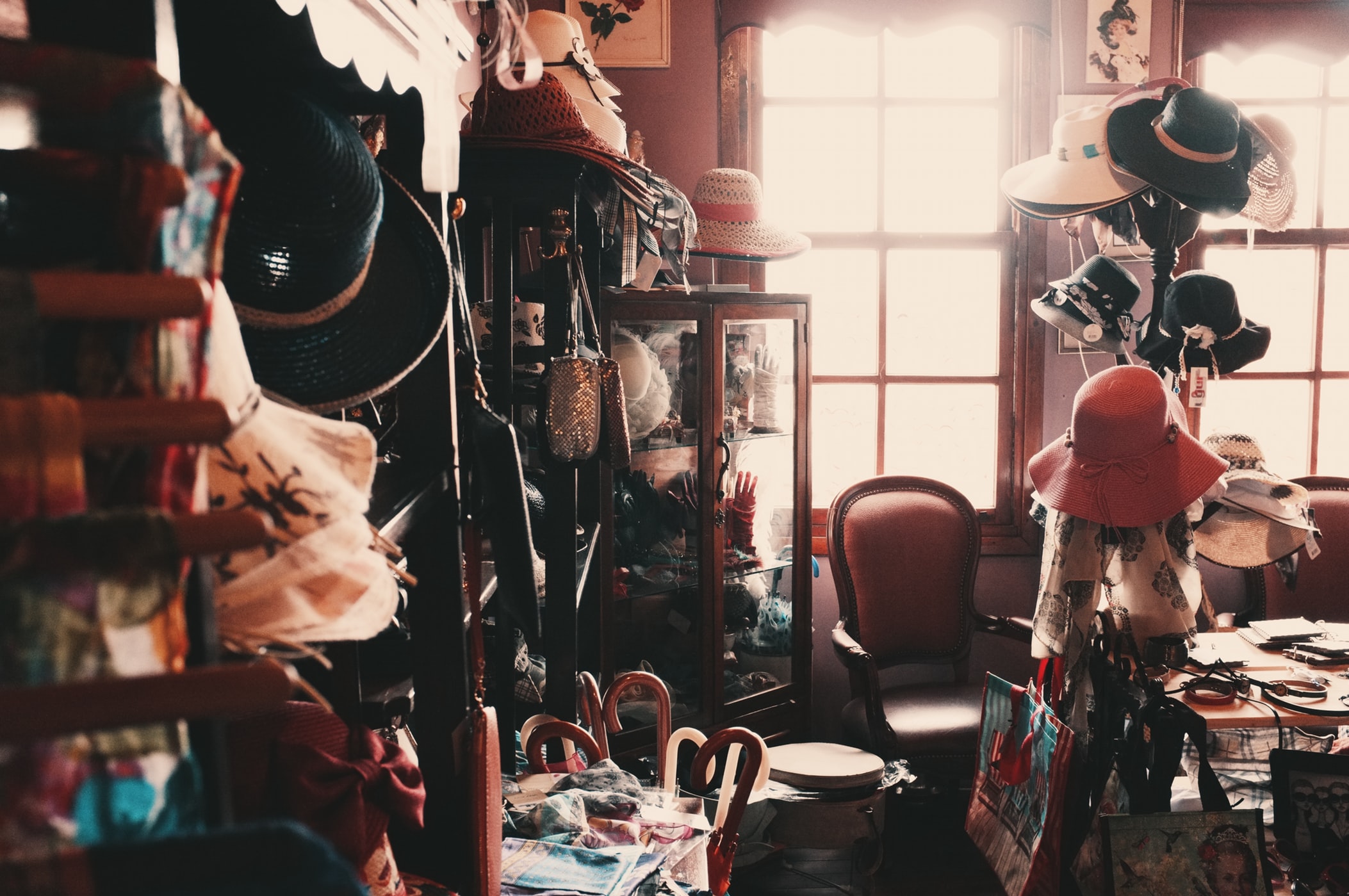The secondhand market in Japan is booming. What is all the craze about? Where can you buy secondhand or used goods? Is living in Japan really budget-friendly? Find out what you could be missing out on.
There are possibly hundreds of secondhand shops or thrift stores across Japan. Any used product that can fetch a price such as clothing, furniture, books, CD, DVDs, jewelry, and knickknacks are available for sale. Nowadays, even makeup, perfume, refurbished electronics, and even high-end brand’s store bags can be resold.
You can find independent stores or franchises that sell used items in Japan. In recent years, the methods of shopping for used products has become increasingly varied. Nowadays, secondhand shopping has gone online with a lot of people joining in for the ride. Yet why is shopping secondhand in general a good idea in Japan? I can give you 10 reasons.
10 Reasons to Shop at Secondhand Stores in Japan on a budget
There are and will always be pros and cons to shopping secondhand, but the pros seem to outweigh the cons in Japan.
1.) For one thing, Japan is a culture known for being clean and organized, and one’s personal items tend to be just as clean. Thanks to most storekeepers being choosy, they tend to carefully select items they intend to sell. Whether it is a brand item or not, it will usually be in good shape.
2.) When Japanese people buy new items, they usually try to keep them maintained as well. Some people tend to get tired of an item and switch it out for the newest or the latest. Trading them in also helps to get back a bit of money. With this in mind, people usually try to trade their stuff in before it starts to wear so that it still has resale value.
3.) Making a life for yourself in Japan can add up, shopping secondhand can be very beneficial for saving money. While living in Japan, thrift shopping has been a very budget-friendly way of living for me personally, and I have found some items I continue to enjoy even years later.
4.) One thing you may not realize that could be another benefit is that traditional Japanese items you have always wanted could be sold at a thrift shop. You can find kimonos, obi (kimono belts), sake cups, dishes, lacquer-ware, traditional decor, or other made in Japan products.
5.) Finding souvenirs from these places for family or friends is also a great way to get them something from Japan.
6.) Also with the popularity of secondhand shops growing, there seem to be more reasonable prices for many items. Some shops may have various prices to appeal to customers such as ¥100, ¥300, ¥500, or sometimes cheaper.
7.) If you want internationally famous brand items, there is a large market in Japan for that as well. For example, you could easily get a genuine Louis Vuitton bag or wallet for a fraction of the price.
8.) Also, the methods of shopping have increased. Aside from basic secondhand stores, there are more specialty shops for brands and high-quality items. In the past few years, even online secondhand shopping has become available as well.
9.) The range of secondhand shops, either independent stores or franchises are also great. You could find something practically at any store it seems.
10.) The choices of clothing sizes seem to be more available at thrift stores. Japanese people tend to be viewed as small and petite, yet there are still people of various sizes in Japan. And with the rising influx of foreigners, a higher variety of sizes are bought in into the country. Although some Japanese clothing sizes are limited, secondhand shops do not tend to limit sizes. Thus, you have a better chance of finding your size. I had some foreign friends of different heights and sizes visit, and they were very happy to find great clothes at secondhand shops in Japan.
However, are secondhand stores easy to recognize? How do you find a second-hand shop in Japan?
How to Spot a Second-Hand Shop in Japan
There are numerous thrift stores in any area in Japan. They could be difficult to recognize at times if you don`t know what to look for. When searching for a secondhand shop there are some key Japanese words to look for if there is no English labeling.
Along most shopping streets 商店街(shoutengai) in major cities or town centers you can usually find a secondhand shop. There are 2 general types of thrift shops. One type is a ‘secondhand clothing shop’ or 古着屋(furugiya). And the other type is a ‘secondhand shop’ or リサイクルショップ(risaikuru shoppu) that may sell clothing, yet tend to sell furniture or other everyday items.
If you are not able to find an independently run store, you may be able to find a secondhand franchise that is either nationally or regionally run. These franchises or so-called ‘chain stores’ チェーン店(cheinten) are also quite great. There are a few nationwide franchises that you could visit. In some areas in Japan, regional chain stores are available.
Secondhand stores are generally pretty easy to spot, as the front is often decorated with mannequins dressed in colorful patterns and interesting silhouettes. Thrift store employees have an impeccable talent for taking pieces that one may not think are fashionable and turning them into eye-catching ensembles. Just look for mannequins decked out in layers and accessories!
Various Japanese Secondhand Shop Franchises
One of the most well-known national thrift shop franchise in Japan is Book Off. As you tell from the name of the company, they sell books, but they also sell magazines, CDs, DVDs, and games.
Book Off the company has also created Mode Off, which is geared toward clothing for men and women, and at some locations for children.
For furniture or appliances, you can go to Off House. Need electronics? You can go to Hard Off. And for everything in one place, there’s Super Off. They tend to carry clothes, dishes, books, CDs, jewelry, furniture, toys, and it just seems to go on.
Then getting to more specialty shops, they have those too! If you are a collector you could go to Hobby Off. Or more recently they started Liquor Off.
Two other franchise names for more clothing and brand items shops are 2nd Street and Bazzstore 古着買取(furugi kaitori).
If you are in the major Tokyo area, there may be a few chain shops such as Tifana that is known for its quality used clothing and brand shop. Depending on where you live, in other major areas in Japan, there may be specific secondhand shop franchises as well.
Popular Secondhand Shops of Harajuku
When shopping at Tokyo’s fashion capital of Harajuku, you can find several shops with all kinds of fashion for all kinds of people. Harajuku is known for some of the world’s hottest fashion trends. When looking for a good piece of clothing to add to your wardrobe or a unique item to enhance your style, Harajuku always seems to have it.
Kinji is a big store that has been around for a while. It’s a secondhand store name I have heard for years. Other long-time running stores include Panama Boy and Harajuku Chicago. Yet there are still so many you could easily find by walking around Harajuku.
Even though being in Harajuku is a unique experience in itself, some shops even offer a unique shopping experience. For example, at Kilo Shop, they have a special color tag weighing system for their clothes. Then at Thrift Tokyo, if you buy 10 items over ¥1900, your purchase will be half the price.
Not only are there many more stores in Harajuku, but so is the case for other major parts of Tokyo and other cities around the country. Still, the shopping options don’t end there. There is a section of Japanese secondhand shopping that has been leading the secondhand boom in Japan which is online secondhand shopping.
Online Secondhand Shops in Japan
Back in your home country, you may be aware that you can buy secondhand items on Amazon or other online platforms. You can also do this in Japan! Thus, to save yourself the time to find some items, instead of going to every single thrift shop, going online promises to save you the time and energy than physically going to the shops.
The Book Off franchise for example already has an online store for their books, games, clothing, brands, and so on. Even 2ndStreet has an online shop. Bazzstore also has items for sale through other online platforms. However, there are companies that sell exclusively online too.
The most popular secondhand online shop is Japan’s own unicorn, Mercari. It is popular because people can directly sell their items online. They also have a system that can guide a seller on how to price their items. According to some friends, this site has been quite useful to shop at.
Other players such as Rikuma and PayPayFurima are also actively advertising their online second-hand store.
Then specifically for you brand lovers, Brandear is a prominent company to look at!
As you can see, Japan has a lot to offer when it comes to bargain shopping at secondhand stores. It’s a budget-friendly way of living here and there are a lot of benefits too.
Are you ready to go bargain hunting? Whether you need clothing for work, make your wardrobe more interesting, or need to furnish your home you are certain to find something at a secondhand store in Japan. Happy shopping!
Related Articles:
Second-hand stores specifically for furniture? Find out here!
Why should you buy more from secondhand stores? Find out here!
More into Harajuku and it’s uniqueness!






